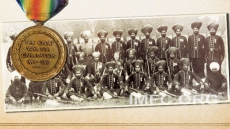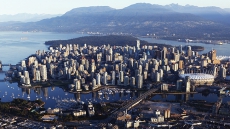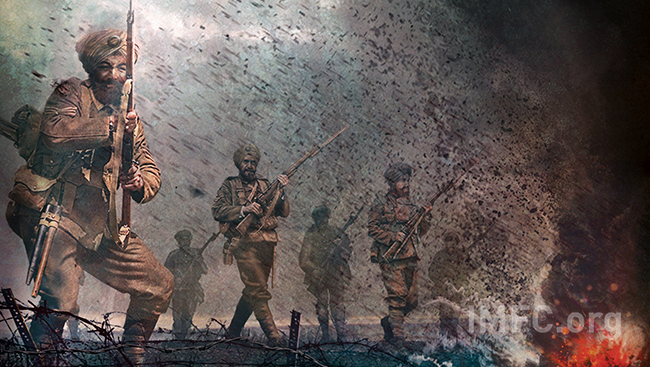India’s biggest kidney dialysis hospital, 'The Guru Harkishan Institute of Medical Sciences and Research Kidney Dialysis Hospital,'offers free treatment for all.
It is said that service to humanity is the best work of life and no one knows this better than the Delhi Sikh Gurudwara Management Committee (DSGMC), which since its inception is committed to ‘Manav Sewa.’ Right from managing various educational institutions, to hospitals, to old age homes, to libraries and other charitable institutions in Delhi for years, the DSGMC, which is headquartered in Gurdwara Rakab Ganj Sahib, has assiduously contributed to society through various channels. Now the committee has added yet another feather to its glorious cap of social service by starting a free-of-charge kidney dialysis centre in Delhi.
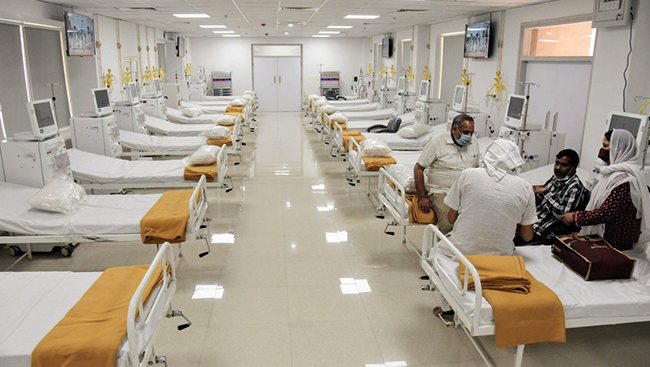
With 101 beds, the Guru Harkishan Institute of Medical Sciences and Research Kidney Dialysis Hospital is touted as India’s biggest kidney dialysis hospital and aims to soon become even the world’s largest kidney dialysis hospital.
Established at Gurdwara Bala Sahib, what makes this centre unique is the fact that there is no cash or billing counter anywhere on the premises.
Commenting about the idea behind setting up the free kidney dialysis hospital, DSGMC president Manjinder Singh Sirsa said in an interview to a web portal, “There are more than 30 per cent kidney patients in India, who don’t have access to proper medical facilities. Either they are very poor or they have sold all their assets to cover health bills but are still struggling to cope up. So, we decided that we will set up India’s biggest kidney dialysis hospital and that too free of cost. You will be surprised to see there is no billing counter here. So, whosoever comes here for treatment, he wouldn’t be charged a single penny.”
Sirsa further added, “The purpose of this hospital is to serve humanity; Sikhs are known for this, we are doing this for years. Soon you will see, this will not be just India’s but the world’s largest kidney dialysis hospital. This will be a thousand-bed hospital very soon. We won’t take any money from the patients. Not only will the patients get free treatment but also free food.”
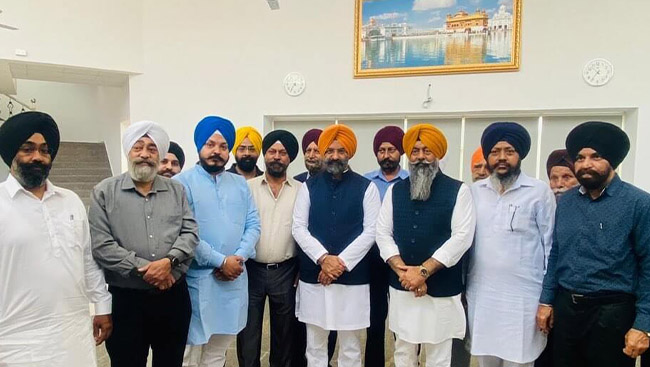
Chronic kidney disease is becoming a major healthcare concern in India. As per India’s Pradhan Mantri National Dialysis Programme, there are about 2.2 Lakh new patients with end-stage renal disease (ESRD) every year in India. This has resulted in additional demand for 3.4 Crore dialysis every year. While the rich can easily bear the medical cost for their treatment, the ones belonging to the lower strata of the society are financially crippled with the long-term expenditure of their treatment. In a scenario like this, this remarkable healthcare project by DSGMC has indeed come as a boon for poor patients suffering from kidney diseases.
What’s more praiseworthy is the fact that despite providing a completely free-of-cost service, the DSGMC has ensured not to compromise on the quality of treatment patients will receive at the hospital. The machines and all the equipment installed in the hospital are sourced from Germany and all the machines are modern as well as equipped with the latest technology.
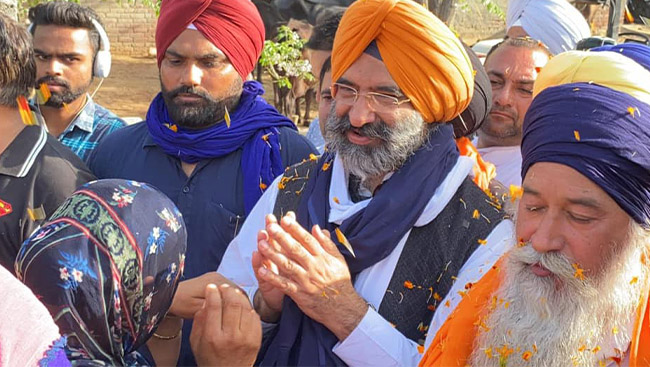
At present, this hi-tech kidney dialysis hospital with 90 paramedics and 24 in-house doctors is equipped to take up to a minimum of 500 patients in a day for dialysis. Keeping all the admission formalities simple, patients of any caste and creed, and from any corner of the country can avail of the free-dialysis facility at the hospital. All they need to do is get their medical reports.
“It is a very unique concept,” said Dr. Venkatesh, Medical Director, Guru Harkrishan Institute of Medical Sciences and Research Kidney Dialysis Hospital. He added, “We don’t ask the patients for their documents for registration or their identity – how people walk into langar and take food, similarly, they can just come here and take dialysis. The patients only have to give all their medical records. The records are then scanned in a computer and it goes to our consulting nephrologists, who are associated with us. The consultant sees the reports and advises us on how to go about it. There is no question asked about giving the aadhar card and all for registering. The entire expenditure for the treatment of the patients will be borne by DSGCM.”
Not only the expenses for the treatment are borne by DSGCM, but the facility also provides free medicine to the patients. Dr Venkatesh informed, “After every dialysis, a patient requires medicines worth INR 2000, we have a pharmacy here and the patients will be given these medicines free of cost after every dialysis.”
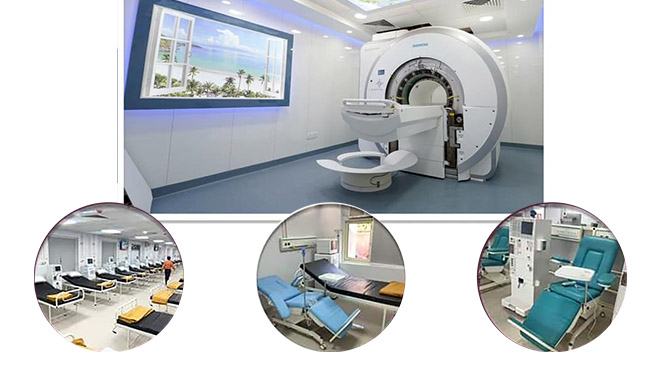
DSGCM aims to cover all its running cost through corporate social responsibility funds, individual donations and government schemes. Speaking about it, Sirsa said, “The concept of the hospital is that we will not charge any money from the patients. Many people are coming out with the contributions, there are people who feel that humans should be served, there are corporate houses who are coming forward … funding it from CSR, so yes we will take all that and won’t charge from patients.”
The committee is dedicated to human service and has been running various medical facilities at different Gurdwaras across the Indian national capital. It has recently also opened a diagnostic centre at Gurdwara Bangla Sahib, where service such as MRI, CT Scan, ultrasound, and other tests are available at the ‘cheapest’ rates. Talking about the committee’s mission, Sirsa said, “Our motive is to provide expensive medical services to the needy free or at cheapest rates.”
May the force be with them. For more information about DSGCM initiatives and to make donations to their noble causes, visit the website: www.dsgmc.in


